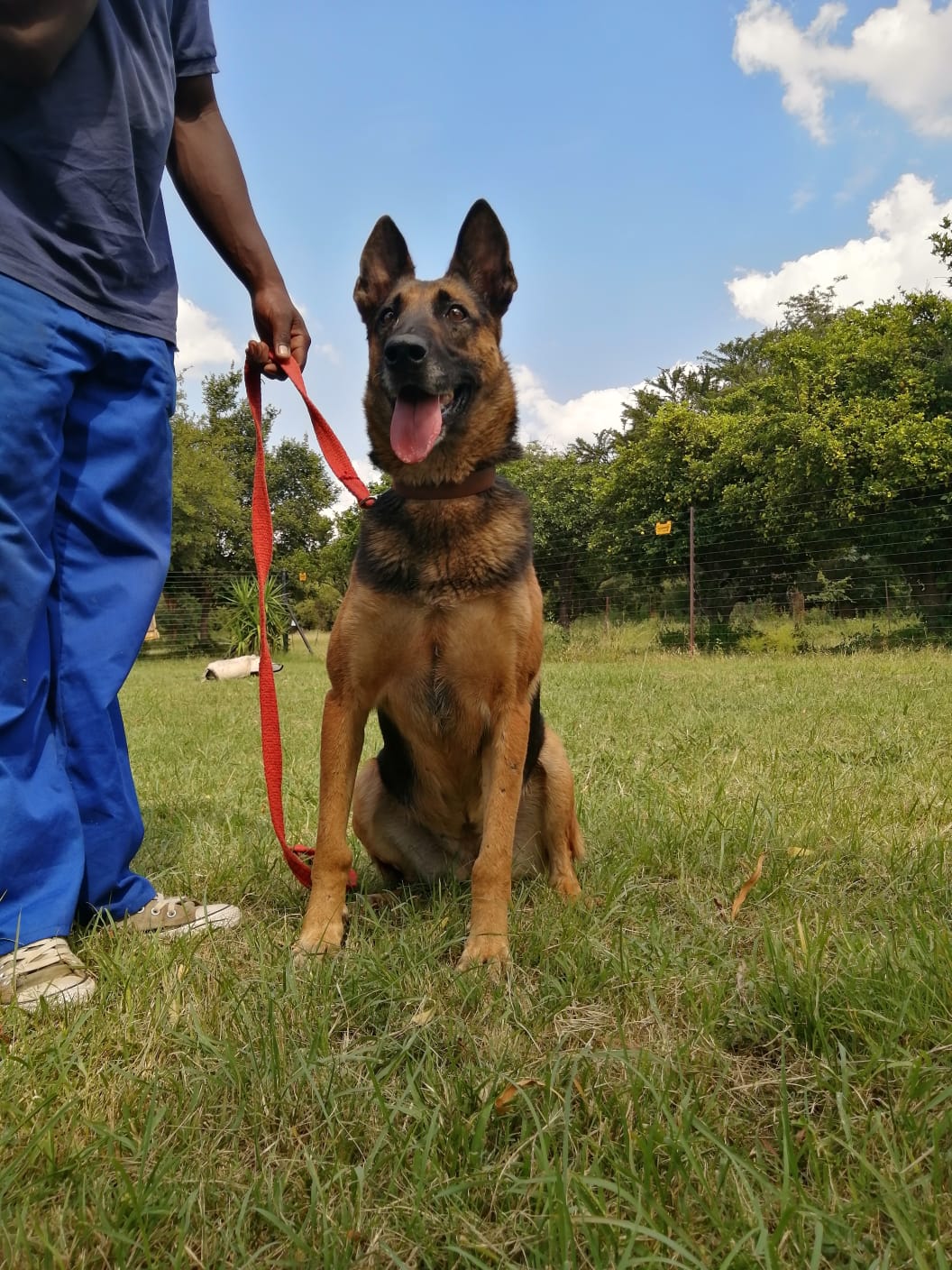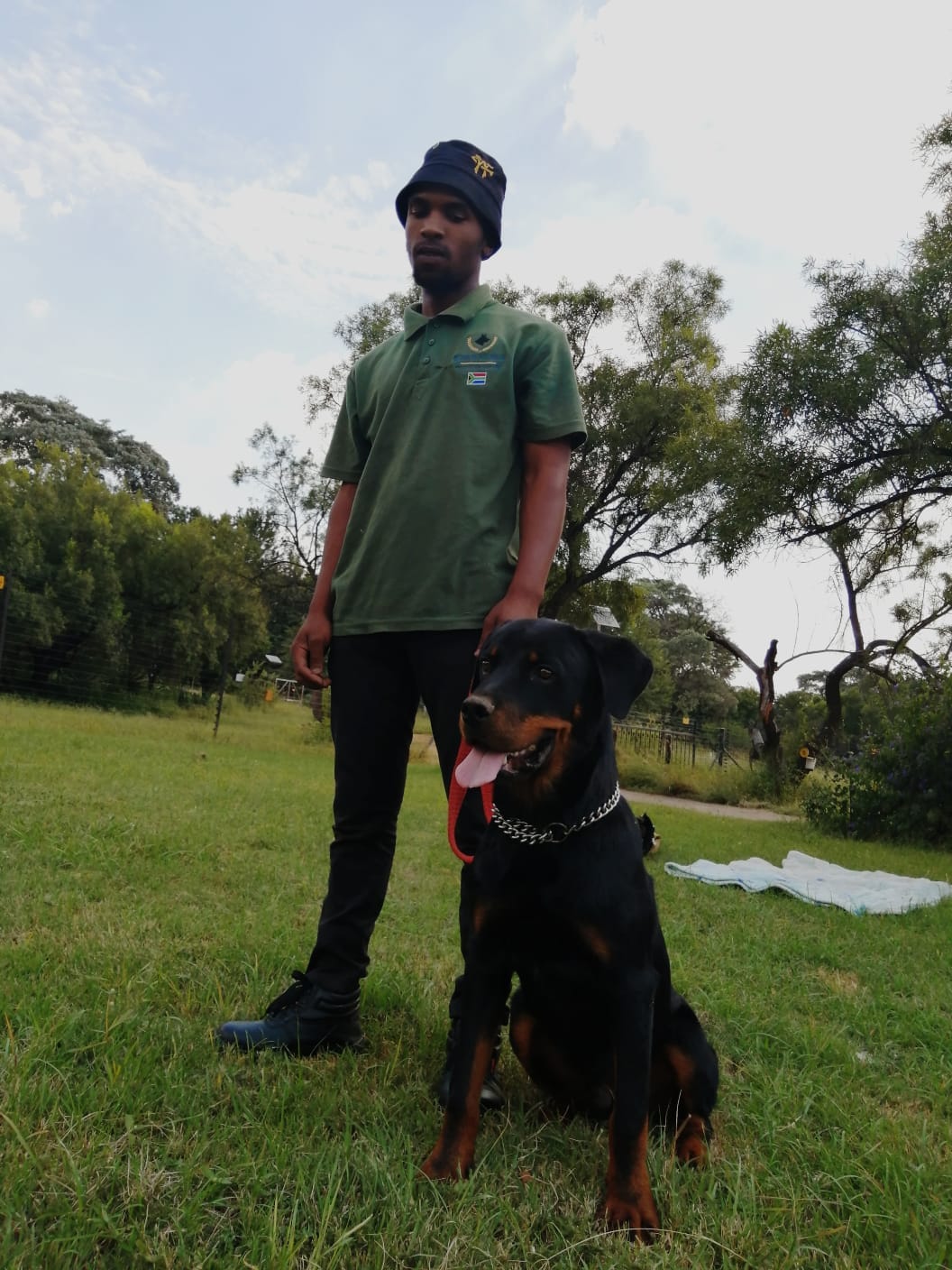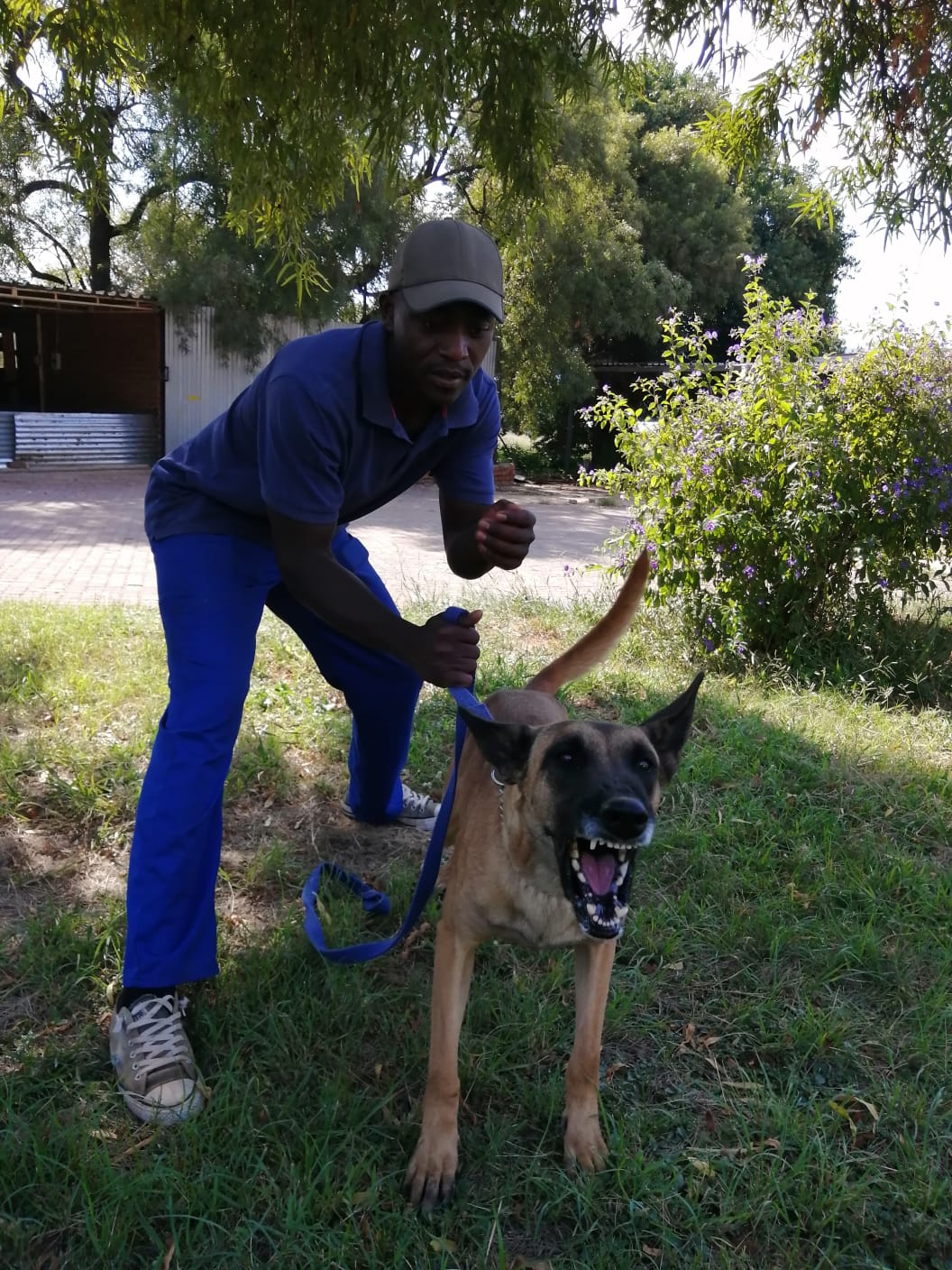What We Offer
- Cargo Screening
- Affordable, comfortable and supervised dog boarding facilities
- Professional grooming
- Micro-chipping
- Parasite control (internal and external)
We also sell dogs already trained in fields such as,
- Explosive detection,
- Narcotic detection,
- Rhino Horn detection,
- Ivory detection,
- Currency detection,
- Copper detection,
- Cray fish detection,
- Accelerant detection.
- Abalone detection
- Tracking dog training
However, our reputation is built on more than just our proven expertise in training.
At our boarding house, our grooming services ensure your dog receives exceptional care, and we keep dogs healthy and happy with nutritious and delicious meals.

Absolutely No Harsh Methods Used

Learning principles:
Understand how animals learn with the laws of learning. They are the foundation of any dog obedience training method.
Classical conditioning, Operant conditioning, and Extinction. (Pavlov’s Theory )
They are the basis of all dog training methods.
Classical Conditioning:
Classical conditioning is how we learn to associate a signal with an event. When an event immediately follows a signal, animals learn to associate them. For example: Your dog gets excited when he hears you getting his food bowl. He has learnt to anticipate that sound with being fed. Classical conditioning is how we learn to associate things.
Operant Conditioning
Operant Conditioning = “My behavior has a consequence”
We learn to associate our behaviour with a consequence through operant conditioning.
There are 4 possibilities:
- The animal RECEIVES a reward for a particular behaviour, so it performs that behaviour MORE OFTEN. For example, if a dog sits and you give him a treat, the dog will start to sit more often to try and get more treats.
- The animal RECEIVES a punishment for a particular behaviour, so it performs that behaviour LESS OFTEN. For instance, if a dog barks and his electric collar gives him a shock he doesn’t like, the dog will bark less often to avoid being shocked.
- A punishment is TAKEN AWAY or stopped when the animal does a particular behaviour, so the dog does that behaviour MORE OFTEN. For example, if a dog is being choked with a choke chain while snarling, and he stops snarling and relaxes his face, the choke on the chain is released. Consequently, the dog will relax his face more often to keep the chain from choking him.
- A reward is TAKEN AWAY from the animal when he does something, the behaviour appears LESS OFTEN, so the animal can get his reward back. For example, if you greet your dog at the door and he jumps on you, you take away your attention (ignore him). As a result, the dog stops jumping to get your attention back.

